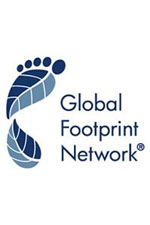
Top stories






More news


Marketing & Media
Ads are coming to AI. Does that really have to be such a bad thing?














Based on ecological footprint data - measuring how much nature we have, how much we use, and who uses what - Earth Overshoot Day is an initiative of WWF's partner, the Global Footprint Network, to raise awareness and inspire action around ecological "overspending".
Climate change is a major impact of overshoot, as using fossil fuels causes harmful emissions of carbon dioxide that the planet simply cannot absorb. Forests are shrinking, fish stocks are waning, land is getting degraded, freshwater resources are dwindling, and biological diversity is depleting.
"We are living as if we have an extra planet at our disposal," says Morne du Plessis, CEO of WWF South Africa (WWF-SA). "WWF's Living Planet Report shows that we are using 50% more resources than the Earth can sustainably produce and unless we change course, that number will grow fast - by 2030 even two planets will not be enough."
Du Plessis adds, "If everyone in the world consumed at South Africa's rate then we would need 2.2 planets to sustain ourselves. Simply put - this clearly indicates that we are asking for more than we have available, and we are not alone. Today, more than 80% of the world's population lives in countries that use more than their own ecosystems can renew."
In 1961, the year WWF was established, humanity was using two thirds of the Earth's available natural resources and most countries had ecological reserves - meaning our footprint was lighter and more sustainable.
By taking action now we can reverse the trend.
Switching to clean, renewable, abundant energy sources like sun and wind will slash dirty emissions that strain our oceans and natural/indigenous vegetation, and pollute our air. Choosing sustainable goods like seafood only found on our Southern African Sustainable Seafood Initiative (SASSI) green list, and wine that is Biodiversity and Wine Initiative (BWI) listed helps ensure products come from well-managed sources.
Jim Leape, director general of WWF International explains, "More than 50% of humanity's ecological footprint is composed of our carbon footprint, especially from the burning of fossil fuels. WWF is currently running a global campaign, Seize Your Power, pressing for much greater investment in renewable energies.
"For a clean and healthy future for our children, we must preserve the natural capital that is left - and be much better stewards of the planet we call home".